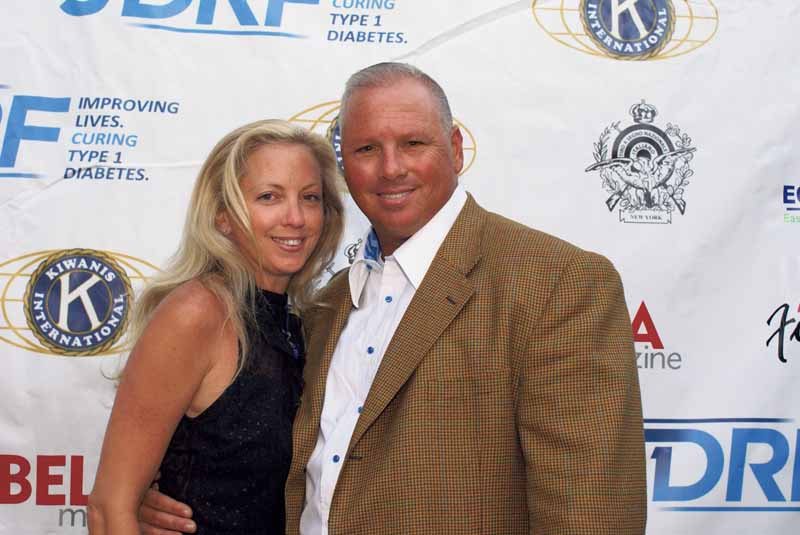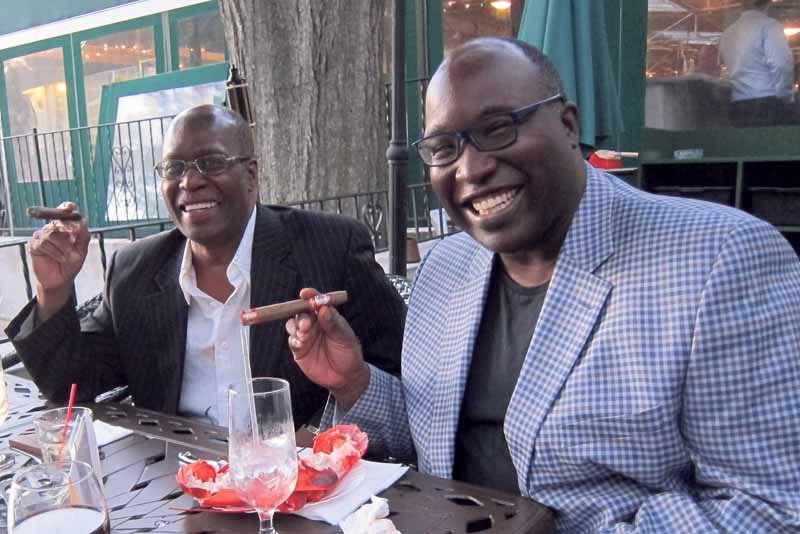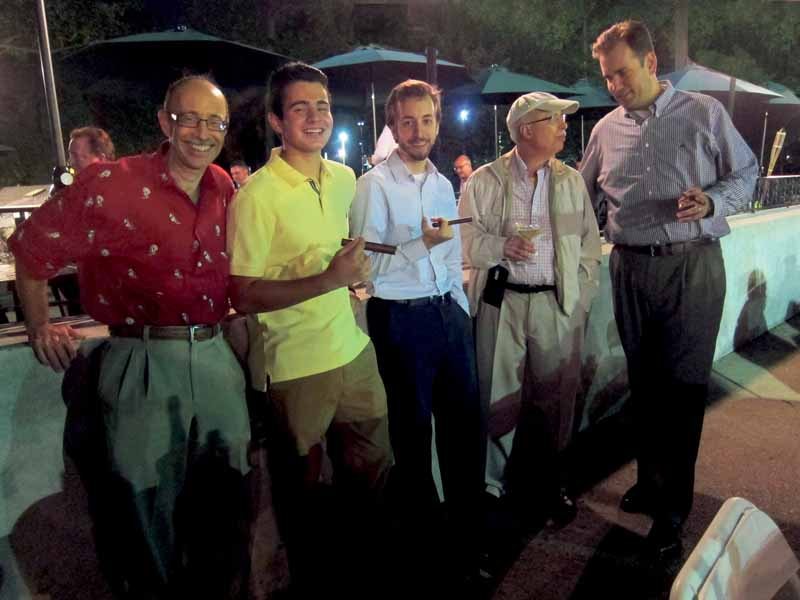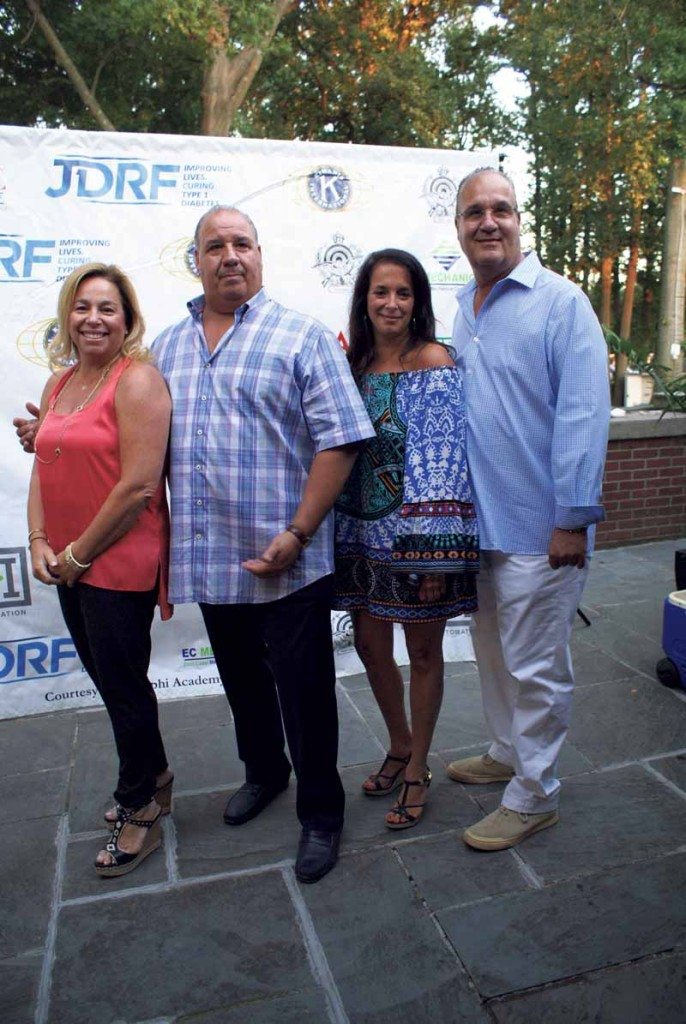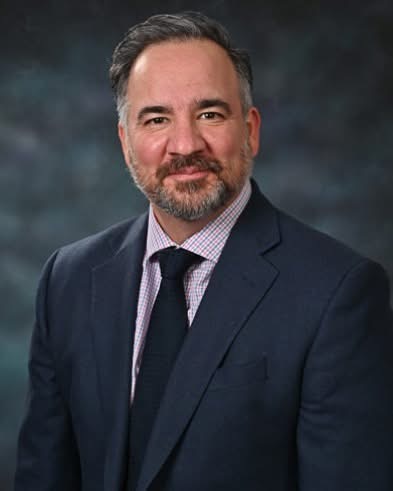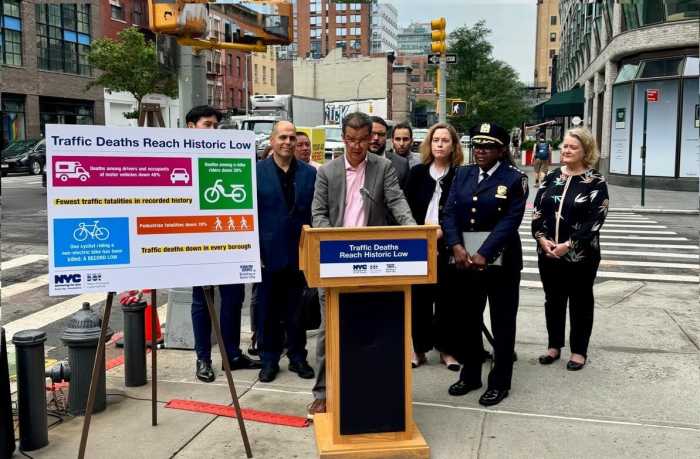The Gurino Family Annual Cigar Party, hosted by brothers Anthony and Angelo Gurino this fall at the Strathmore Vanderbilt Country Club, had yet another successful year. The Cigar Party, now in its fifth year, started as a grassroots effort by the Gurino brothers to raise money to benefit JDRF after a young family member was diagnosed with type 1 diabetes (T1D). What began as a relatively small gathering in Anthony Gurino’s home has grown into a well-attended event at a local country club. In addition to cigars, the evening included good food, good music, good fellowship and a wide variety of top-shelf aperitifs. This year’s event raised more than $50,000.
The Cigar Party was held outside on a beautiful clear evening on the upper and lower terraces surrounding the pool. After the 300-plus guests had settled in, Angelo Gurino welcomed the crowd before introducing Joe Muré, long-time board member of the New York City chapter of JDRF. Muré thanked everyone for his or her support and said that grassroots events like the Cigar Party make a significant impact on the fundraising goals of JDRF. He thanked the Gurino family for its tremendous effort in arranging and hosting the ever-popular and successful Cigar Party.
Muré went on to discuss the future of the “artificial pancreas” or “closed-loop system” for children and adults with T1D. With insulin pumps and continuous glucose monitoring (CGM) devices now widely available, researchers are working to coordinate the two devices to form a closed-loop system in which people with T1D receive insulin through a pump throughout the day and night based on very frequent glucose measurements provided by a CGM device. This concept was envisioned by a couple of tech-savvy people with T1D who decided to “hack” their diabetes devices six years ago to create closed-loop systems for their own use.
Closed-loop systems for T1D are now in clinical trials. Muré expressed hope that FDA approval for the device would be announced soon, and on Wednesday, Sept. 28, the FDA announced its approval for people ages 14 and older. These devices should be available by spring of 2017.
Additionally, research is ongoing in the field of encapsulated beta cell replacement therapy, which is when insulin-producing islet cells are wrapped in a protective barrier and implanted in the body of a person with T1D. The barrier shields the cells from being destroyed by an attack from the immune system, but the cells are still able to sense changes in blood-sugar levels and release insulin as needed.
JDRF is the leading global organization funding research for T1D, a life-threatening autoimmune disease affecting millions of people—children and adults—around the world. JDRF works every day to amass grassroots support, deep scientific knowledge and strong industry and academic partnerships to fund research. More information about JDRF can be found on its website at www.JDRF.org.




